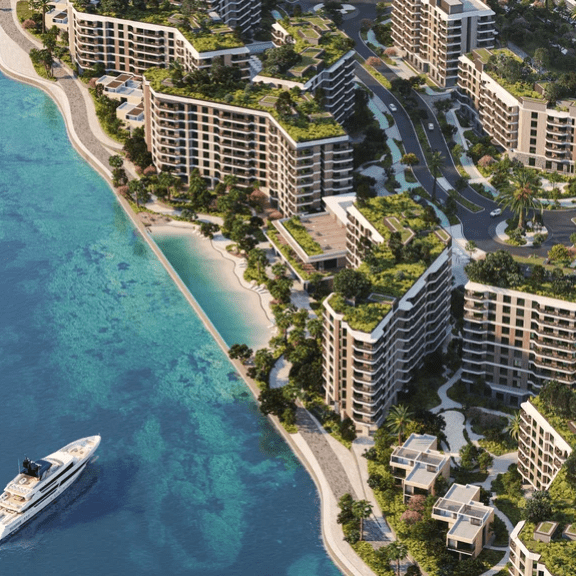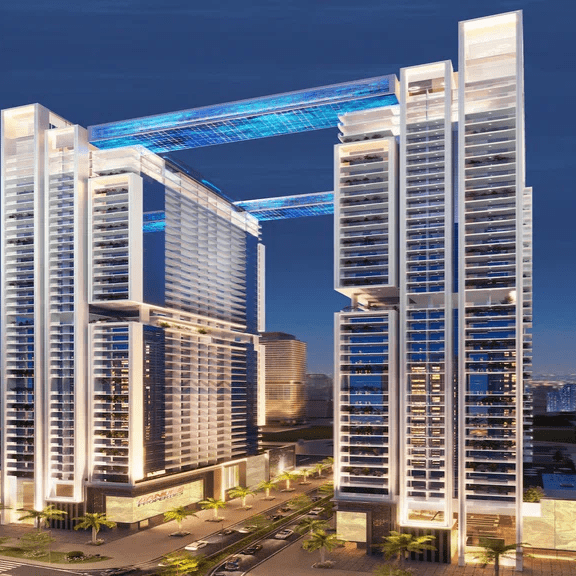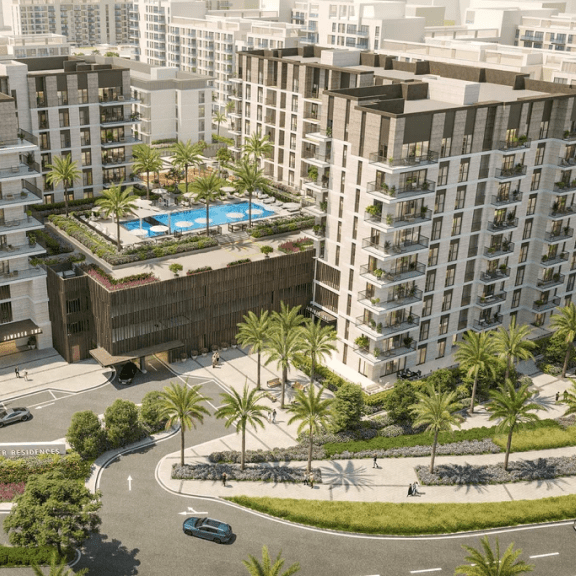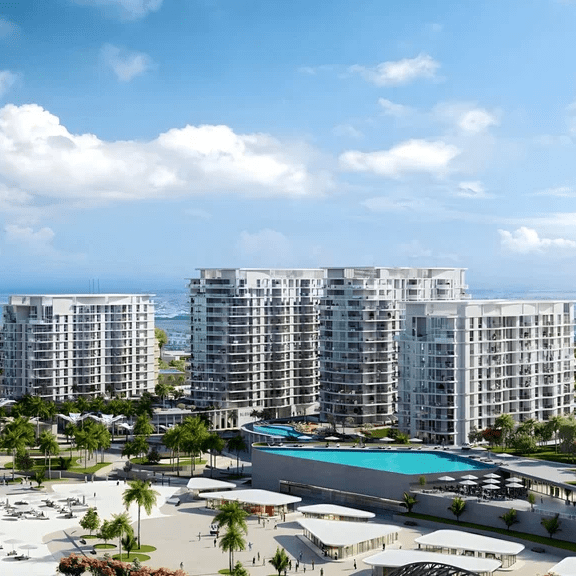Over the past few years, Dubai has become one of the most attractive destinations for emigration and ranks high in ratings of the best cities for expatriates. This is due to a number of factors: high living standards, extensive business and career opportunities, favourable taxation and a warm climate. However, as is the case everywhere, there are advantages and disadvantages. We will tell you here everything that you need to know if you move to Dubai.
Geography and Climate
Dubai is one of seven emirates in the UAE and has a capital with the same name. Dubai is the country’s largest city and has a large seaport off the Persian Gulf. Two local airports, Dubai and Al Maktoum, are major transfer hubs: you can travel almost anywhere in the world from here.
The city’s key districts are Bur Dubai (historical centre), Downtown (tourist and business district), Dubai Marina (residential district in the city centre), Deira (commercial district in the eastern part of the city), Jumeirah (coastal residential district), and Gardens (commuter town).
Dubai has residential communities focused on a peaceful suburban lifestyle. In general, however, this is a very lively, dynamic, and bustling megacity where you may find life fairly exhausting if this is new to you.
Photo: Kent Tupas (Unsplash)
The weather in Dubai is sunny and cloud-free all year round. The annual average temperature is 29 to 30 °C. Precipitation is very rare, occurring mostly between December and March. The sea surface temperature hardly ever falls below 20 °C which makes it suitable for comfortable swimming all year round.
At the same time, in the summer, the atmospheric temperature often reaches extreme heights. You will find air conditioning not only in homes, offices and shops, but also in some public transportation stops. Many expatriates take their vacation and go home between June and September to avoid the extreme heat. There is another unpleasant peculiarity to watch out for - the occasional sandstorms that envelop Dubai.
New buildings in the UAE
Visas and Bureaucracy
The first issue to address if you plan to move to Dubai is the receipt of a residency visa which is the country’s version of a residency permit. The grounds for issuing such visas vary: employment, the launch of a business, the purchase of real estate, study at the country’s accredited institutions of higher education. The effective term of a visa ranges from six months to 10 years. The procedure for processing the visa and the set of paperwork to be submitted depends on what you plan to do and how much you invest in the country’s economy.
In the case of employment, you need to have a contract with a local company. Your visa will be valid as long as your contract is valid, and the employer is responsible for all the respective fees.
If you are looking for a job, you can enter Dubai on a visitor visa, and contact employers directly. You can also find recruitment agencies online that will help you with your job search.
Since 2019 the UAE has been issuing Golden visas for real estate owners and buyers. At present investors can apply for four types of visas: three-year, five-year, 10-year and retirement visas (for foreigners over the age of 55). The minimum purchase price of real estate to get a three-year visa is AED 750,000 (a little over USD 204,000 at the exchange rate of the Central Bank of the UAE at the beginning of June 2023). The property must be located in a freehold area. To find out more about residency visas, click here.
Dubai also has a visa programme for remote working. A residency visa is granted to freelancers for a year. This enables you to stay in Dubai for a year working for your current employer located outside the country or freelancing. At the same time, however, you cannot obtain a job in Dubai with this visa.
The processing of any type of visa takes on average two to three months. Visas can be renewed an unlimited number of times and also apply to the visa holder’s immediate family.
Unfortunately that is not the end of the story. In the early stages, expats should be ready to spend a lot of time handling the bureaucracy. Once you get the visa, you will need to file for an Emirates ID – this is the identity document that you will need within the country. In addition to a work permit and the Dubai residency visa, expatriates must obtain licences for many activities. For instance, you cannot buy a car until you get a local driver’s licence (although you can still rent one with an international driver’s licence).
Jobs and Salaries
Expats represent almost 90% of Dubai’s population, and the emirate provides a fairly wide selection of jobs for people with differing levels of skills and qualifications. The city authorities aspire to transform Dubai into one of the technological, innovative and research destinations of the world and focus on diversifying the economy. Legislation is constantly being reviewed and improved in order to attract young talent and new start-ups. Many international companies have branches in Dubai, while moving there may open up good career advancement opportunities.
Foreign investors can fully own local companies without needing an Emirati sponsor, except in the energy, hydrocarbon, telecommunications and transportation sectors.
The IT sector would now appear to be the most popular in the region, supplanting banking and e-retail. There is also demand for specialists in healthcare, education, construction and real estate, hospitality, corporate law and management, alternative energy, robotics, the mining industry and space exploration.
The level of salaries in Dubai is already considered high, and the main advantage of the city and the UAE in general is the absence of personal income taxes (including income from employment, the letting of real estate, dividends, and securities). Emirate residents also do not pay annual property tax and inheritance tax.
Photo: DocuSign (Unsplash)
It is largely due to the lack of income tax that Dubai tops expat ratings in terms of net earnings. Management professionals who relocate to Dubai earn on average almost USD 300,000 a year. A senior consulting physician can make over USD 27,000 a month. The average daily rate for independent construction design contractors exceeds USD 945. In the case of sales and business development, employees earn over USD 700 a day.
Social and bonus packages also tend to be very attractive. The best employers may include housing allowance, home flights, education fees for the children of employees, relocation assistance and a corporate pension in employment contracts.
The international money transfer market in the UAE is extremely well developed. If you want to send money home, you can choose from a wide range of options. Just pick the one that you find most convenient and profitable.
At the same time, you will have to work a lot in Dubai. As a rule, international companies expect a great deal from their expat employees and working hours tend to be very long (they are reduced to six hours only during Ramadan). Another feature: Friday and Saturday are recognised as the weekend, as Friday is a holy day for Muslims.
Please also bear in mind that if you lose your job at the company which sponsored your visa, you will only have one month to find a new position. If you don’t, you will have to leave Dubai. In addition, the number of times you can change jobs is limited by the law and depends on your level of education.
Safety and Rules of Conduct
The crime rate in Dubai is extremely low, close to zero. This city is considered one of the safest in the world due to the very strict laws in place. Some violations can result in long-term imprisonment (up to and including life sentences) or deportation.
Islam is the official religion in the UAE. However, Dubai is a fairly flexible emirate where they are tolerant of other people's beliefs and lifestyles. It has also been voted the best place in the Middle East for women and is one of the most moderate regimes when applying the rules of Islam to day-to-day life. For example, ever since 2020 expats can buy and drink alcohol without a licence (although it is not advisable to appear inebriated in public). Expats can eat and drink during the day during Ramadan – however, please note that it is disrespectful to do this in front of the locals). Cohabitation is no longer illegal: emigrants can follow their own country's rules on divorce and inheritance.
At the same time, however, adultery or sexual relations with a married woman are punishable by imprisonment and subsequent deportation. A similar penalty may be incurred if you have a large debt or pay rent with an invalid cheque.
In addition, you should not take photos or videos of anyone without their consent: this is considered an invasion of privacy and is strictly prohibited. Drunk drivers will face stringent sentences. Other violations of traffic rules are also punished severely. Eating and drinking on public transport or using indecent language in public may result in a fine.
Photo: Luigi Estuye, LUCREATIVE® (Unsplash)




